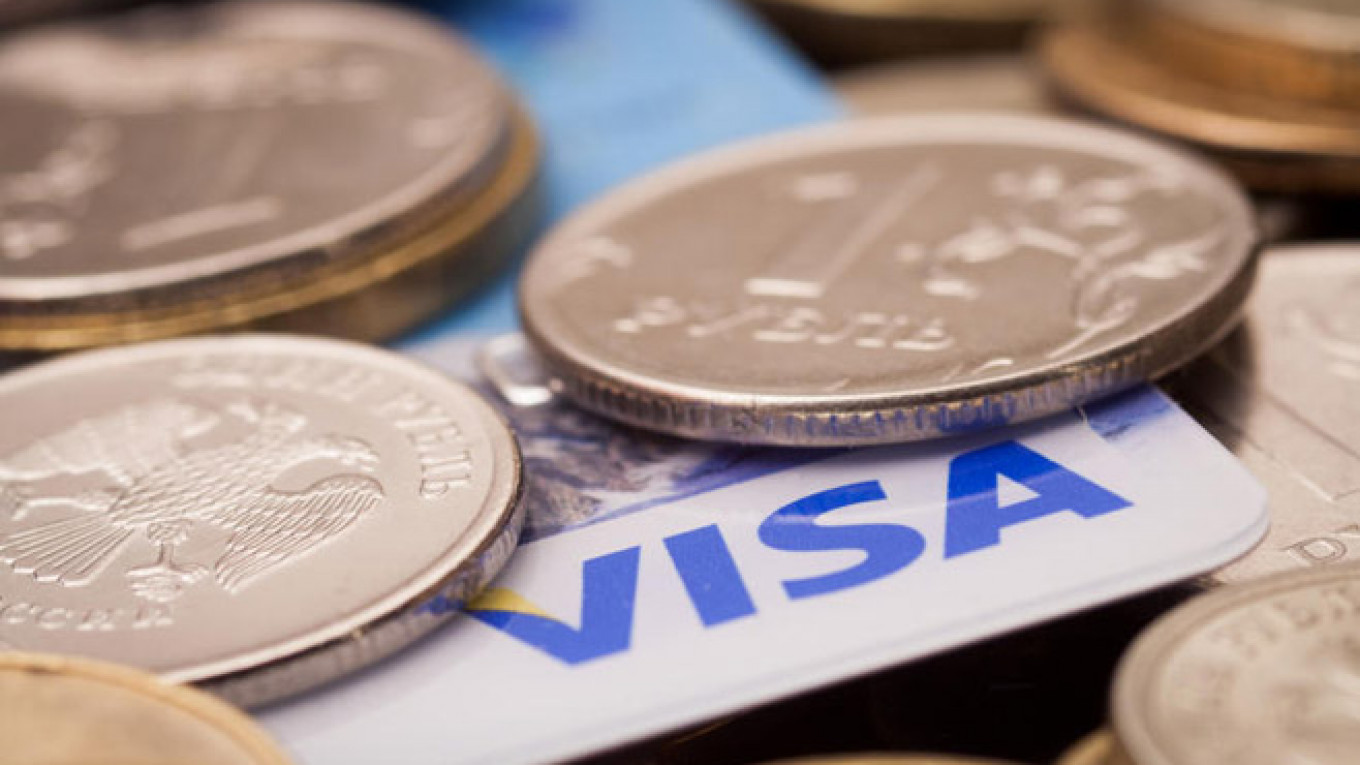The cost for Russian banks of guaranteeing payments through Visa and MasterCard is rising as risk analyses of Russian companies worsen amid fears of further Western sanctions, Vedomosti reported Monday, citing unidentified banking sources.
Western banks have raised the price of guarantees that Russian banks purchase to ensure settlement of payments via Visa and MasterCard, both on the cards they issue and for merchants they process payments for.
If a year ago these guarantees cost 2 percent of the sum of a contract, now they cost 3 percent, an unidentified banker told Vedomosti.
Foreign banks attribute the price hike to higher risk appraisals of Russian companies following EU and U.S. sanctions against Russia over the crisis in Ukraine, the banker said. The cost increase was confirmed by the heads of two large Russian banks, Vedomosti reported.
The rise in costs comes as Russian banks struggle with an exodus of Western money from Russian markets prompted by the sanctions, which has hit liquidity and reportedly forced some banks to turn to the state for refinancing and aid.
While the price of guarantees has certainly increased for players outside Russia's top 20 lenders, the price for large banks varies, a source from one of the top five banks on the credit card market said. Many guarantees are provided for a period of a year and have not yet expired, he added.
Most Russian banks use guarantees to ensure payments through the systems, but the increased cost may now push them into stumping up security deposits directly to Visa and MasterCard. Already costlier than buying a guarantee, the price of security deposits is also rising on the high perceived risk attached to Russia.
Western banks have meanwhile stopped accepting guarantees from leading Russian lender Sberbank since it was sanctioned by the EU in July, which is also pushing Russian banks toward deposits over guarantees, two sources told Vedomosti.
Mid-sized banks had been able to first take out a counter guarantee from Sberbank followed by an additional guarantee from a Western bank, an option now most likely off the table, the report said.
Sberbank, Visa and MasterCard declined Vedomosti's requests for comment.
See also:
A Message from The Moscow Times:
Dear readers,
We are facing unprecedented challenges. Russia's Prosecutor General's Office has designated The Moscow Times as an "undesirable" organization, criminalizing our work and putting our staff at risk of prosecution. This follows our earlier unjust labeling as a "foreign agent."
These actions are direct attempts to silence independent journalism in Russia. The authorities claim our work "discredits the decisions of the Russian leadership." We see things differently: we strive to provide accurate, unbiased reporting on Russia.
We, the journalists of The Moscow Times, refuse to be silenced. But to continue our work, we need your help.
Your support, no matter how small, makes a world of difference. If you can, please support us monthly starting from just $2. It's quick to set up, and every contribution makes a significant impact.
By supporting The Moscow Times, you're defending open, independent journalism in the face of repression. Thank you for standing with us.
Remind me later.






